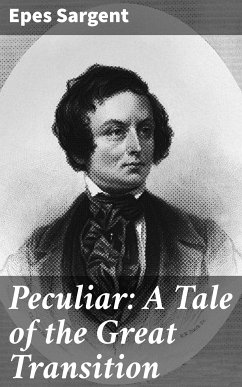
The Great War in England in 1897 (eBook, ePUB)
Enriched edition. Invasion, Espionage, and Fear: A Historical Thriller
Kommentar: Whitaker, Trevor / Redaktion: Good Press

PAYBACK Punkte
0 °P sammeln!
In "The Great War in England in 1897," William Le Queux crafts a gripping narrative that intertwines elements of speculative fiction and political thriller. Set against the backdrop of an imagined conflict where England faces invasion, the novel explores themes of nationalism, imperial ambition, and societal fragility. Le Queux employs a vivid literary style punctuated by dramatic dialogue and meticulous attention to detail, effectively creating a palpable tension that reflects the anxieties of the Victorian era. This work resonates within the context of late-19th-century fears surrounding for...
In "The Great War in England in 1897," William Le Queux crafts a gripping narrative that intertwines elements of speculative fiction and political thriller. Set against the backdrop of an imagined conflict where England faces invasion, the novel explores themes of nationalism, imperial ambition, and societal fragility. Le Queux employs a vivid literary style punctuated by dramatic dialogue and meticulous attention to detail, effectively creating a palpable tension that reflects the anxieties of the Victorian era. This work resonates within the context of late-19th-century fears surrounding foreign threats and the decline of British hegemony, foreshadowing the tumultuous realities that would unfold in the 20th century. Le Queux, an author and journalist with a keen interest in espionage and military affairs, was deeply influenced by the geopolitical climate of his time. His extensive travels across Europe and reporting on various conflicts informed his understanding of tensions between nations, which he adeptly translates into his fiction. This background not only enriches the narrative of "The Great War in England in 1897" but also positions Le Queux as a prescient commentator on the rising tide of global conflict. Readers who appreciate historical fiction interwoven with elements of speculative narrative will find "The Great War in England in 1897" an engrossing exploration of fear and resilience. It serves not only as a thrilling story but also as a reflective lens on the socio-political landscape of its era, making it essential reading for anyone fascinated by the interplay of fiction and history. In this enriched edition, we have carefully created added value for your reading experience: - A succinct Introduction situates the work's timeless appeal and themes. - The Synopsis outlines the central plot, highlighting key developments without spoiling critical twists. - A detailed Historical Context immerses you in the era's events and influences that shaped the writing. - A thorough Analysis dissects symbols, motifs, and character arcs to unearth underlying meanings. - Reflection questions prompt you to engage personally with the work's messages, connecting them to modern life. - Hand-picked Memorable Quotes shine a spotlight on moments of literary brilliance. - Interactive footnotes clarify unusual references, historical allusions, and archaic phrases for an effortless, more informed read.
Dieser Download kann aus rechtlichen Gründen nur mit Rechnungsadresse in A, B, BG, CY, CZ, D, DK, EW, FIN, F, GR, H, IRL, I, LT, L, LR, M, NL, PL, P, R, S, SLO, SK ausgeliefert werden.













